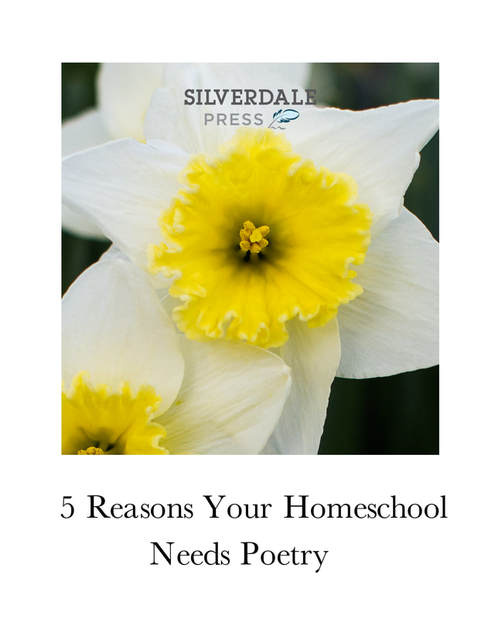 April is National Poetry Month. Did you know that reading and writing poetry can help improve your homeschool student's writing? It’s true! From book reports to persuasive pieces, poetry makes all writing better. In our soon-to-be released homeschool writing curriculum, Persuasive Writing and Classical Rhetoric: Practicing the Habits of Great Writers, we profile great persuasive writers. These great persuasive writers also read and wrote poetry: Dorothy Sayers, the source of classical homeschool inspiration, wrote poetry during her advertising and mystery writing career. John F. Kennedy, who was a Pulitzer Prize winner before he was president, read Lord Byron and Robert Frost. Sarah Josepha Hale, before she persuaded presidents to proclaim the Thanksgiving holiday, published a volume of children’s poetry. Hale’s volume contained the poem “Mary’s Lamb,” which is known today as “Mary Had a Little Lamb.” Poetry is a key ingredient in a successful homeschool writing. If your goal is to grow great writers, here are 5 reasons you should include poetry in your homeschool. 1. Poetry improves vocabulary An extensive vocabulary is the writer’s most valuable tool. The best thesaurus is no replacement for the reservoir of words stored in one’s brain. Poets must choose vivd words, and they must choose them carefully. As a result, poems are rich with lucid and surprising words. By reading poems, students will extend their vocabularies to include rich and beautiful language. 2. Poetry improves rhythm A piece of writing must be musical. Whether it’s a book report, opinion editorial, or dinner menu, writing must have rhythm. Reading poetry helps students know what sounds pleasing to the ear. By reading poetry, students will naturally imitate its sound and cadence in their own writing. 3. Poetry improves imagery Poets must show, not tell. Poetry paints pictures. The task of the poet is to spark the reader’s imagination. Writers across all genres must also paint pictures, even if their purpose is to persuade, inform, or explain. Writing will be more effective if it can come alive in the reader’s mind. 4. Poetry speaks to the emotions Writers must connect with their readers. They do this by appealing to emotions. Appealing to emotions (pathos) is an especially important part of persuasive writing. And so by reading poetry, writers can understand how to connect with the audience’s emotions. 5. Poetry sparks critical and creative thinking Research shows that reading poetry stimulates our creative and cognitive abilities. Poetry is meant to be meditated upon. Thinking deeply about a poem improves one’s attention span. It also awakens self-reflection, which, in turn, sparks creative expression. Don’t know how to get started with poetry? Here are some links to poems read or written by featured writers from our new homeschool writing curriculum: Lord Byron Robert Frost Sarah Josepha Hale Dorothy Sayers Make it a goal to read a poem a day in April. Find a poet that resonates with your homeschool student. Over time, you will see your child’s writing become infused with a new level of style!
0 Comments
Leave a Reply. |
Silverdale PressCheck out our About Page to learn more about us! Categories |

 RSS Feed
RSS Feed